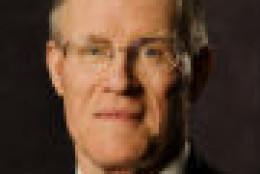Hubbard Radio Washington DC, LLC. All rights reserved. This website is not intended for users located within the European Economic Area.
On Air: Federal News Network
Pay
-
Pay, pensions and health insurance premiums are all going up in the next several months. But definitely not at the same rate, says Senior Correspondent Mike Causey. White collar workers know what their January 2015 raise will be. But the cost of living adjustment for retirees is still to be decided, and new (and in some cases higher) health premiums will be unveiled in October.
September 29, 2014 -
A 1 percent pay raise is in the works for federal employees and military members. But are people happy about it? The answer is yes and no, depending on who you ask. We asked, and you answered at Federal News Radio.com. Federal News Radio's Web Manager Julia Ziegler joined Tom Temin on the Federal Drive with details.
September 05, 2014 -
Although feds received a 1 percent pay raise last January and can expect a repeat come 2015, they may still be feeling the effects of the Great Recession, says Senior Correspondent Mike Causey.
September 04, 2014 -
Federal employees are in the same boat as many private sector workers when it comes to cost-of-living pay increases. But, at least, feds can look forward to a likely 1 percent pay bump next January, says Senior Correspondent Mike Causey.
September 03, 2014 -
In a new report, the Government Accountability Office says the Office of Personnel Management needs to be more aggressive in updating the 55-year-old General Schedule, the system that governs pay for most white-collar federal jobs.
September 02, 2014 -
President Barack Obama called for a 1 percent pay increase for federal employees Friday to go into effect on Jan. 1, 2015. Congress still has the ability to block the increase when members return to work Sept. 8.
August 29, 2014 -
The government is on the hook for violating its own labor laws. A federal judge ruled this week that the government failed to provide on-time pay to federal employees who worked during last year's 16-day shutdown. Federal Employment Attorney Jonathan Bell joined Tom Temin on the Federal Drive with details on the complaint.
August 21, 2014 -
Office of Personnel Management asks agencies to consider how the proposed across-the-board 1 percent pay increase for all federal employees will impact the special rates some employees salaries are calculated on.
August 12, 2014 -
The rule comes more than two years after President Barack Obama signed the provision into law on July 6, 2012. Under the final rule, eligible employees can work part time while drawing on part of their earned retirement benefits. Phased retirees must also spend at least 20 percent of their time mentoring other employees.
August 07, 2014 -
Buying an annuity from the Social Security Administration is one way for federal employees to bolster their retirement income. And yes, you heard that right, you can buy a Social Security annuity. Tammy Flanagan is Senior Benefits Director for the National Institute of Transition Planning. She says on In Depth with Francis Rose the cost of the annuity depends on how patient you are.
July 25, 2014 -
The TSA Office of Inspection Accountability Act of 2014, sponsored by Rep. Mark Sanford (R-S.C.), would no longer classify some Transportation Security Administration agents in the Office of Inspection as law enforcement officers.
July 23, 2014 -
Despite higher prices at the pump, overall living costs rose only slightly last month. For federal-military-Social Security retirees, that points to a 1.9 percent cost of living adjustment in January.
July 23, 2014 -
The Government Accountability Office is in the middle of an ongoing, multi-year study on the pay system, and taking its findings to Capitol Hill. A House Oversight and Government Reform subcommittee looked at the General Schedule last week. Jessica Klement is legislative director of the National Active and Retired Federal Employees Association. She shared her own ideas of how to reform the General Schedule on In Depth with Francis Rose.
July 22, 2014 -
The military is shrinking, but the Pentagon's personnel costs keep growing. In fact, it pays about $125,000 per active-duty service member, including both salary and benefits. Two Washington think tanks are raising alarms. They say the Pentagon needs to do something now so it doesn't have to cut other critical parts of its budget later on. Steve Bell is senior director of economic policy at the Bipartisan Policy Center. He joined Tom Temin and Emily Kopp on the Federal Drive to discuss why the personnel cost has become expensive.
July 22, 2014








